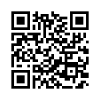Assessing the needs for Javanese learning for speakers of other languages
Tri Sugiarto, Universitas Negeri Yogyakarta, Indonesia
Nandyan Ayu Nooryastuti, Universitas Negeri Malang, Indonesia
Endang Nurhayati, Universitas Negeri Yogyakarta, Indonesia
Sri Hertanti Wulan, Universitas Negeri Yogyakarta, Indonesia
Abstract
This article presents a report on the needs analysis of Javanese learning for speakers of other languages. Applying the descriptive-analytical method, this study used data gathered from the survey of 57 participants from 27 different countries. The present study revealed that the most difficult aspect of studying Javanese is on mastering its vocabulary (54.8%). This condition limited the learners’ confidence to engage in any conversation with the locals (74.2%) and made them less progressive in some other related competencies such as reading and writing. Based on the participants’ responses to the survey, the approach recommended to facilitate the program of Javanese for speakers of other languages is the communicative approach. The design of the program targeted proficiency in communicating using Javanese. Vocabulary learning is needed in real situations and contexts. Therefore, the learners could improve their capacity in Javanese and engage with the local people better. Through its comprehensive examination of the challenges, opportunities, and potential solutions, this research not only contributes to the field of language education but also reinforces the value of embracing linguistic diversity as a cornerstone of our shared human experience.
Keywords
Full Text:
PDFReferences
Azizah, K., & Adriani, M. (2020, October). Hierarchical transfer learning for text-to-speech in Indonesian, Javanese, and Sundanese languages. In 2020 International Conference on Advanced Computer Science and Information Systems (ICACSIS) (pp. 421-428). IEEE. https://doi.org/10.1109/ICACSIS51025.2020.9263086.
Hutchinson, T., & Waters, A. (1987). English for specific purposes. Cambridge university press.
Kumala, S. A. (2021). Analysis of Language Attitude and Language Preservation in Javanese Language.: A Case Study of Javanese Speaker in Madiun, East Java. e-LinguaTera, 1(1), 11-19. https://doi.org/10.31253/pr.v1i1.578.
Maruti, E.S, Yulianto, B., Suhartono, S., Yohanes, B., &Cahyono, B.E.H. (2022). Scale development as a measuring tool of critical Javanese language awareness for pre-service Javanese teachers, Cogent Arts & Humanities, 9:1, 2127987, DOI: 10.1080/23311983.2022.2127987
Nurmasari, L., Subiyantoro, S. & Fadhilah, S. (2019). Fourth grade students’ difficulties in inderstanding Javanese language text. In Proceedings of the Tenth Conference on Applied Linguistics and the Second English Language Teaching and Technology Conference in collaboration with the First International Conference on Language, Literature, Culture, and Education (CONAPLIN and ICOLLITE 2017) - Literacy, Culture, and Technology in Language Pedagogy and Use, pages 487-492. DOI: 10.5220/0007169704870492
Ravindranath, M. & Cohn, A.C. (2014). Can a language with millions of speakers be endangered?. Journal of the Southeast Asian Linguistics Society, 7, pp.64-75. http://hdl.handle.net/1885/11968
Sudaryanti, M., Ulya C., Rohmadi, M., & Kuhafeesah. (2019). Inter-rater assessment on listening media for foreign language speakers. BIPA 2019, 09. DOI 10.4108/eai.9-11-2019.2295064
DOI: https://doi.org/10.21831/diksi.v31i2.64944
Refbacks
- There are currently no refbacks.

This work is licensed under a Creative Commons Attribution-ShareAlike 4.0 International License.
Jurnal Diksi is published by Faculty of Languages, Arts, and Culture, Universitas Negeri Yogyakarta. It is licensed under a Creative Commons Attribution-ShareAlike 4.0 International License. Based on a work at http://journal.uny.ac.id/index.php/diksi
Our Journal has been Indexed by:
Diksi Journal is published by the Faculty of Languages and Arts Universitas Negeri Yogyakarta in collaboration with Himpunan Sarjana Kesusasteraan Indonesia (HISKI)
Supervised by:





2.png)










